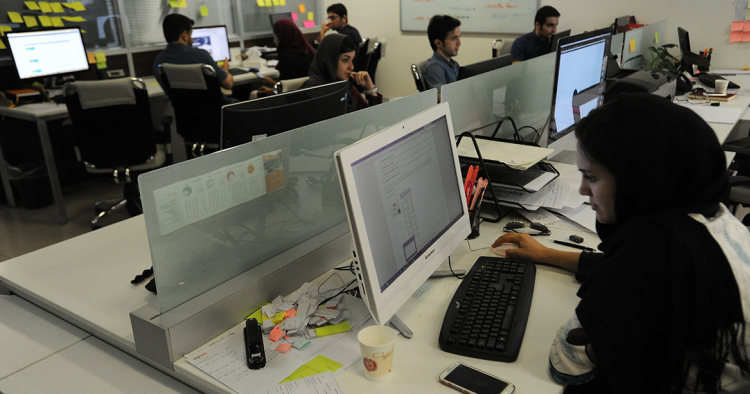Why global IT outage did not affect Iran
While a global software outage Friday brought many computer systems across business, healthcare, technology and government sectors to a screeching halt and paralyzed daily activities, no disruptions were reported in Iran.
According to Iranian officials and experts, the reason was the country’s reliance on a national data network and the capabilities of its elite youth.
IT experts have warned that many businesses will take weeks to recover fully from the unprecedented computing outage after a faulty software update from the company they trusted to secure their systems caused massive global disruption.
U.S. security firm CrowdStrike blamed an update to its Falcon software for a bug that broke 8.5 million Windows PCs and servers, grounding planes, postponing hospital appointments, and taking broadcasters off air around the world.
Airlines had to cancel thousands of flights, mostly in the US, though European countries, Australia, India and Canada were also affected.
Analysts said the outages were all the more shocking given that CrowdStrike had built a trumped-up reputation as many companies’ first line of defense against cyberattacks.
The global ripple effect illustrated the interconnectivity of concentration risk in the tech market monopolized by the United States, sparking calls for greater political and regulatory scrutiny.
Tech researchers have already cited a widespread crisis of confidence amongst security and IT teams within the Microsoft security customer base following a series of high-profile cyber incidents affecting the tech giant.
From the early hours of the global disruption in Microsoft services, the National Cyberspace Center of Iran went into action to make a detailed assessment of the situation and manage it, but no damage or disruption was reported.
Iran has been banned from receiving US-based tech services ever since the country came under the most draconian sanctions.
Like in many other sectors, the embargo prompted the country's youth and tech elite to design alternative services which are currently operational across Iran.
“While in many countries of the world, widespread internet disruptions have paralyzed daily activities, there is no news of such disorders in our country,” Deputy Minister and President of Communications Regulatory Authority Amir Mohammad Lajevardi wrote on local microblogging and social networking service Virasty.
“One of the reasons is the establishment of the national data network and reliance on the ability of the country's elite youth,” he added.
According to Lajevardi, more than 80% of the country's need for cloud services is currently provided through domestic providers.
National Virtual Space Center spokesman Hossein Dalirian says Iran’s capabilities in local cloud services are suitable for export and the country is ready to transfer its achievements and export them.
Mohammad Elmieh, a cyberspace expert, says the global computing outage was not the first of its kind, but its scale and universality was remarkable this time.
The largest public cloud providers such as Microsoft, Amazon and Google hold a sway over the market for infrastructure, which is not accessible to Iran. Such services, Elmieh says, have been replaced inside the country and their optimizations have gained more momentum over the past three and four years, resulting in Iran’s favor in the recent tech crash.
The expert is quick to qualify his remarks. “We cannot claim that we have localized everything, but we can say that these cloud infrastructures are internal… Therefore, it is very unlikely that cloud services in our country will be affected by such a global disruption.”

Airbus plane grounded due to US sanctions returns to Iran’s fleet

Iran gears up for largest trade event on upbeat mood

Iran starts major project to treat wastewater with cold plasma
Death toll from US airstrikes on Yemen rises to 74
Iran: World must hold Israel accountable for mass murder, targeting children
Iran: Agreement with US within reach if Washington is realistic
Hayya: Hamas ready to hold talks for ‘comprehensive’ peace deal
Iran strongly condemns 'brutal' US airstrikes on Yemen’s fuel port
IRGC kills ringleader of terror group behind deadly attacks in SE Iran
IAEA deputy chief to visit Tehran for technical discussions: Iran nuclear spox
Trump induces socio-economic turmoil in Washington







 This makes it easy to access the Press TV website
This makes it easy to access the Press TV website